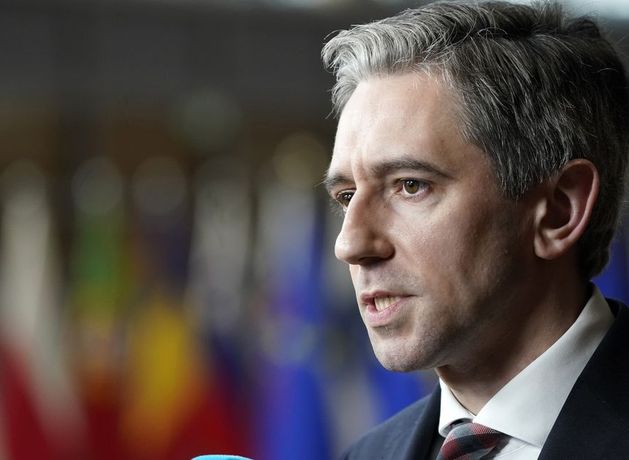World
Simon Harris says immigration is a ‘good thing’ for Ireland but it would be ‘absurd’ not to discuss control over EU borders

The policy has been put forward by the European People’s Party (EPP), of which Fine Gael party is a member.
However, integration minister Roderic O’Gorman said Government’s focus should be on domestic immigration measures.
Asked if Fine Gael supports the proposal put forward by the EPP, Mr Harris said: “I think we should have a very open mind in relation to this because if we’ve learned anything about the migration challenges, that it is a global challenge.
“Indeed so much of the migration that we see here in Ireland – immigration is a good thing by the way, our country has benefited from it – but we do have to have rules and a rules-based system.
“So much of the migration and immigration that comes to Ireland is through secondary movements. So the idea that we wouldn’t have a composite look at migration, migration policy and law from a European level, to me just would seem absurd, and therefore that brings you into the space of looking at the borders of the European Union.
“But I think of course, it raises questions as to at what point and where you assess people’s application.
“The Migration Pact does deal with a lot of this. So it’s not simply a matter of the European People’s Party view. This has happened in some cases already within the European Union and Albania, I think Turkey on occasions as well.
“Anything that would have to happen in this space would have to be fully compliant with human rights law, and with the European Court of Human Rights as well.
“I think we should keep an open mind in relation to this but only if any such actions were proven to be beneficial to the overall migration pact and be in most important compliance with human rights.”
However, Mr O’Gorman said Government should be concentrating on strengthening the immigration system within Ireland.
Asked if the Green Party would agree with the Taoiseach’s comments, Mr O’Gorman said: “I think our focus has to be on strengthening our own system here in Ireland – I think we all recognise that the system wasn’t fit for purpose. And a huge amount of work has taken place over the last two years.”
He added: “You look at the UK, they’ve been selling this notion that there’s a other-country solution to the pressures of migration through the Rwanda scheme – it never worked, it’s never delivered.
“I would think, and the focus of Government up to this point, has been strengthening, delivering, growing our own capacity to process people’s applications, get their answer more quickly.
“Yes: allow them to integrate in Ireland. No: ask them to leave, and ultimately if they don’t leave, to provide for deportation.”
Pressed if the Taoiseach was wrong to suggest the third-country scheme should be examined, he repeated: “I think the focus should be on what we’ve delivered already.”
Ireland has been grappling with a sharp rise in the number of asylum seekers.
Last December, the Government said that it could no longer offer male asylum seekers state accommodation. Since then, encampments have sprung up in different parts of the city because of a lack of accommodation.
Mr Harris said he has “concerns” around some country’s migration policies and its compliance with human rights, however he refused to name which countries he was referring to.
“The crucial point that Ireland will always adopt, and I think there’s a political consensus around this point, is that anything that is done in relation to migration policy and processing has to be human rights compliant,” he said.
“There have been other countries, and I’m not referencing Australia, where we’d have very significant concerns around the compliance of their actions with the ECHR (European Convention on Human Rights) and human rights.
“This idea that Ireland, a small island on the geographic periphery of Europe, can consider how best to address the global migration challenge on its own rather than being part of a composite conversation, series of laws and processing systems at a European level to me would seem misplaced.”










